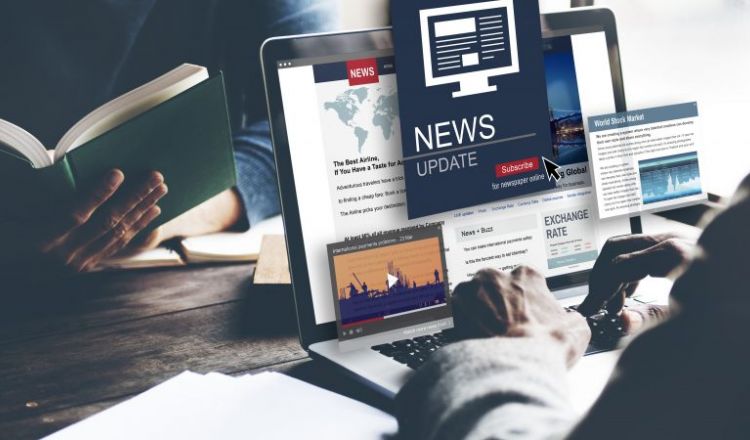The European press sector has serious concerns about the ongoing Digital Services Act negotiations in Parliament and Council, which risk undermining Europe’s free and independent press.
Victoria Svanberg is the acting vice-chair and acting chairman of NWT Gruppen AB and president of News Media Europe.
European press publishers are whole-heartedly behind new internet rules for a safer, fairer and more transparent online environment. Not only do we support it, we ask for it. We want, after all, our content to flourish on responsible distribution channels.
Based on the recently adopted Council’s position, it seems that governments have not grasped the scale of the challenges experienced by media with tech companies. To the co-legislators soon entering trilogues, we would like to explain why concrete media freedom safeguards are needed in the Digital Services Act.
Empowering the truth
“Empowering the truth” together with “Protecting and promoting media freedom” are the guiding principles in our association. These principles, which we consider mutually reinforcing, have never been more important in a context of financial difficulty for the media, disinformation crisis and the polarization of societies.
In fact, pressure has grown everywhere across Europe about the spread of disinformation on social media and the need for access to reliable information. We believe that free and independent media have an important role in addressing these concerns while restoring trust online. This means that the press should make sufficient diverse high-quality reporting available to citizens, with verified sources, fact-checked reporting, critical analysis and dissenting opinions.
We would not want the DSA to delegate regulatory powers to very large platforms. Our editors-in-chief have direct responsibility for the content they publish. In doing so, they abide by applicable media, civil and criminal laws, local editorial standards, journalistic ethics and press council’s decisions, while upholding the newsroom’s reputation. This allows for independent reporting, free from interference by political or commercial interests. As it stands, we risk adding an additional layer of scrutiny by intermediaries and undermining such independence. Because professional publishing takes on so many layers of responsibilities and obligations, we expect our business partners to respect editors’ decisions.
We therefore caution against over-simplistic approaches to fighting disinformation, as altering or censoring press content is not compatible with press freedom, nor with sound democratic processes. Professional and respected publications across the European Union too often experience content removal and shut down of business accounts by social networks, without prior warning nor justification. While precautionary measures against illegal content are understandable, disregard of European laws and values is inadmissible.
We share the concerns regarding foreign interference and media manipulation through for instance Russia Today or France Soir, but we should not impose blanket measures over the vast majority of serious and independent newsrooms only to cover a handful of malicious players. This would simply be disproportionate.
To protect our intellectual property and to promote the freedom of the press, we need non-discriminatory access for editorial publications, protection of the integrity of press content online, more transparency into algorithmic decision by the platforms and procedural safeguards allowing for better dialogue between platforms and press publishers on the application of the legal framework and terms and conditions.
Keep the press accountable to citizens, only
As the fourth pillar of modern democracies, a free press can only perform its democratic mandate with independence, and accountability to citizens, and citizens only.
Press publishers proudly contribute to what makes Europe a uniquely rich cultural market and a highly sophisticated democratic forum. Too often is press freedom taken for granted in the European Union, where we expect services, ideas and content circulating freely. While newsrooms throughout the Union are dealing with political and financial pressures every day, even in Member States with some of the best functioning democratic institutions, we should strive for the highest level of press freedom in the interests of citizens and democratic debate. This includes the ability for editors and journalists to report and create content free from undue scrutiny and obligations, be it from politicians, commercial players or tech giants.
This is why internet regulation and media freedom should go hand-in-hand. European values and freedoms are at stake if we leave it up to big tech to scrutinize European press content.
Where do we go from there?
On the one hand, media organisations strive to preserving independent journalism as a public good, while on the other hand they need to off-set the financial investments made in the production of high-quality content. The good news is that these requirements are not mutually exclusive. But we must guarantee proper conditions for online journalistic content to remain independent and flourish.
This can only happen with the right level of ambition in addressing the relations with online intermediaries, which we consider based on transparent communication and genuine cooperation, and the confidence that the integrity of press content is guaranteed. The future of news will, after all, increasingly rely on healthy and trusted partnerships between news producers and platforms. The DSA is a unique opportunity to establish the basis for healthy and sustainable relations, while protecting the freedom of the press and the integrity of the content it produces.
We call on co-legislators to take these considerations into account when negotiating the DSA package, as a matter of democratic and cultural sovereignty.










